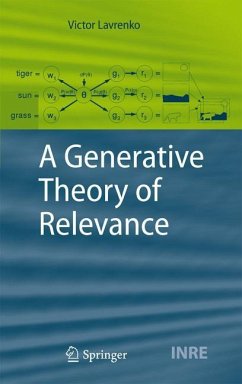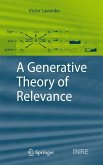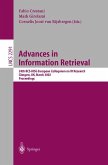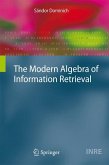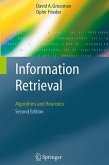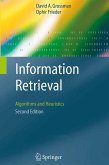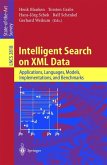A modern information retrieval system must have the capability to find, organize and present very different manifestations of information - such as text, pictures, videos or database records - any of which may be of relevance to the user. However, the concept of relevance, while seemingly intuitive, is actually hard to define, and it's even harder to model in a formal way.
Lavrenko does not attempt to bring forth a new definition of relevance, nor provide arguments as to why any particular definition might be theoretically superior or more complete. Instead, he takes a widely accepted, albeit somewhat conservative definition, makes several assumptions, and from them develops a new probabilistic model that explicitly captures that notion of relevance. With this book, he makes two major contributions to the field of information retrieval: first, a new way to look at topical relevance, complementing the two dominant models, i.e., the classical probabilistic model and the language modeling approach, and which explicitly combines documents, queries, and relevance in a single formalism; second, a new method for modeling exchangeable sequences of discrete random variables which does not make any structural assumptions about the data and which can also handle rare events.
Thus his book is of major interest to researchers and graduate students in information retrieval who specialize in relevance modeling, ranking algorithms, and language modeling.
Lavrenko does not attempt to bring forth a new definition of relevance, nor provide arguments as to why any particular definition might be theoretically superior or more complete. Instead, he takes a widely accepted, albeit somewhat conservative definition, makes several assumptions, and from them develops a new probabilistic model that explicitly captures that notion of relevance. With this book, he makes two major contributions to the field of information retrieval: first, a new way to look at topical relevance, complementing the two dominant models, i.e., the classical probabilistic model and the language modeling approach, and which explicitly combines documents, queries, and relevance in a single formalism; second, a new method for modeling exchangeable sequences of discrete random variables which does not make any structural assumptions about the data and which can also handle rare events.
Thus his book is of major interest to researchers and graduate students in information retrieval who specialize in relevance modeling, ranking algorithms, and language modeling.
From the reviews: "Lavrenko introduces a new model of relevance for information retrieval (IR). He introduces a new way of looking at topical relevance with a new way of modeling topical content. ... The book is divided into six chapters. ... The index is adequate ... . The lists of figures and tables in the tables of contents are very useful for quick reference. IR professionals and graduate students are the intended audience ... ." (E. Y. Lee, ACM Computing Reviews, May, 2009) "The goal of this book is to provide a third alternative to the classical probabilistic model and the language modeling approach. It introduces a model of retrieval that treats relevance as a common generative process underlying both documents and queries. ... To researchers and graduate students the book offers a new way of thinking about relevance, a number of interesting facts about existing models, and some explanations for strange experimental observations." (Antonín Ríha, Zentralblatt MATH, Vol. 1168, 2009)

